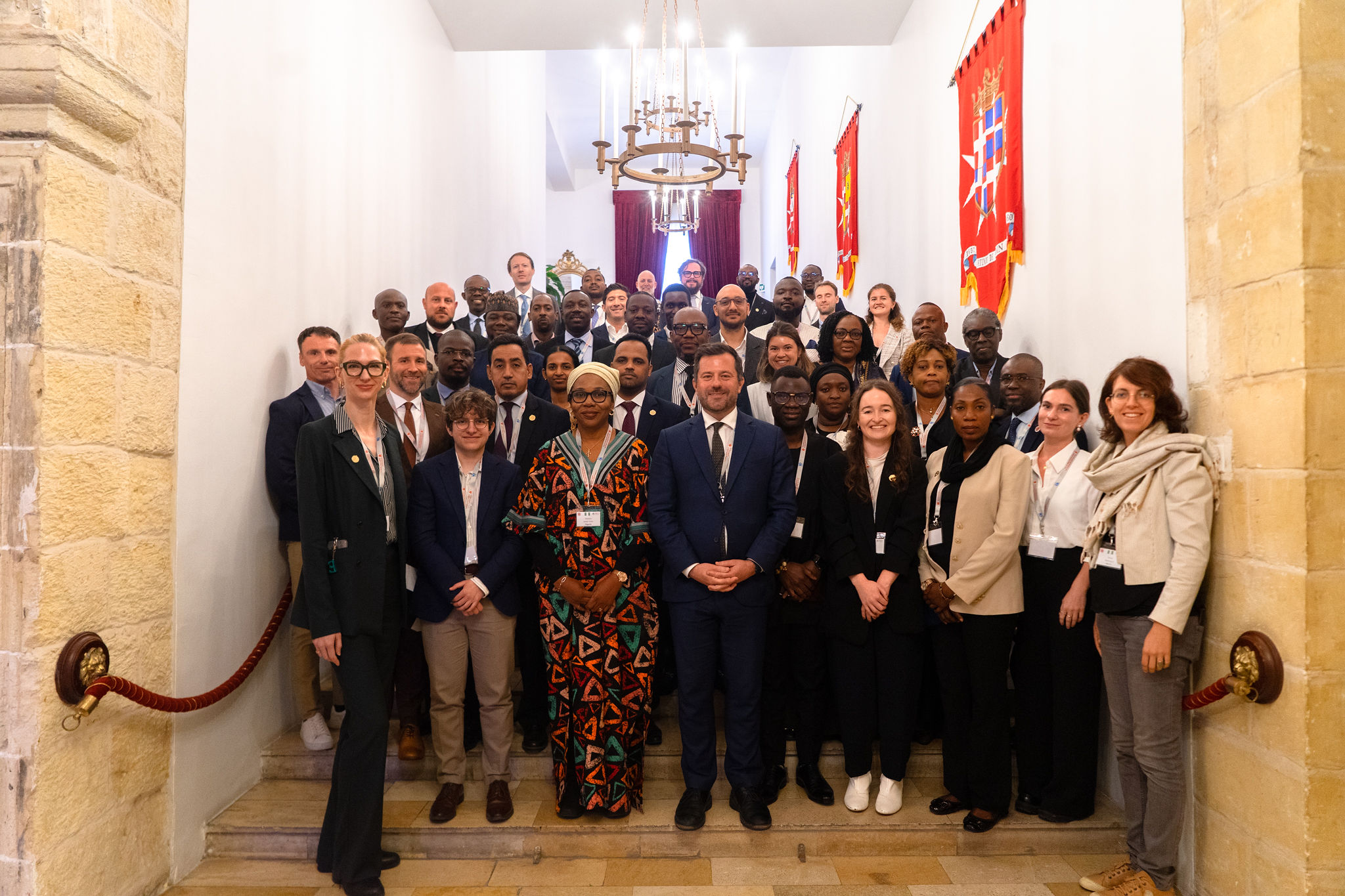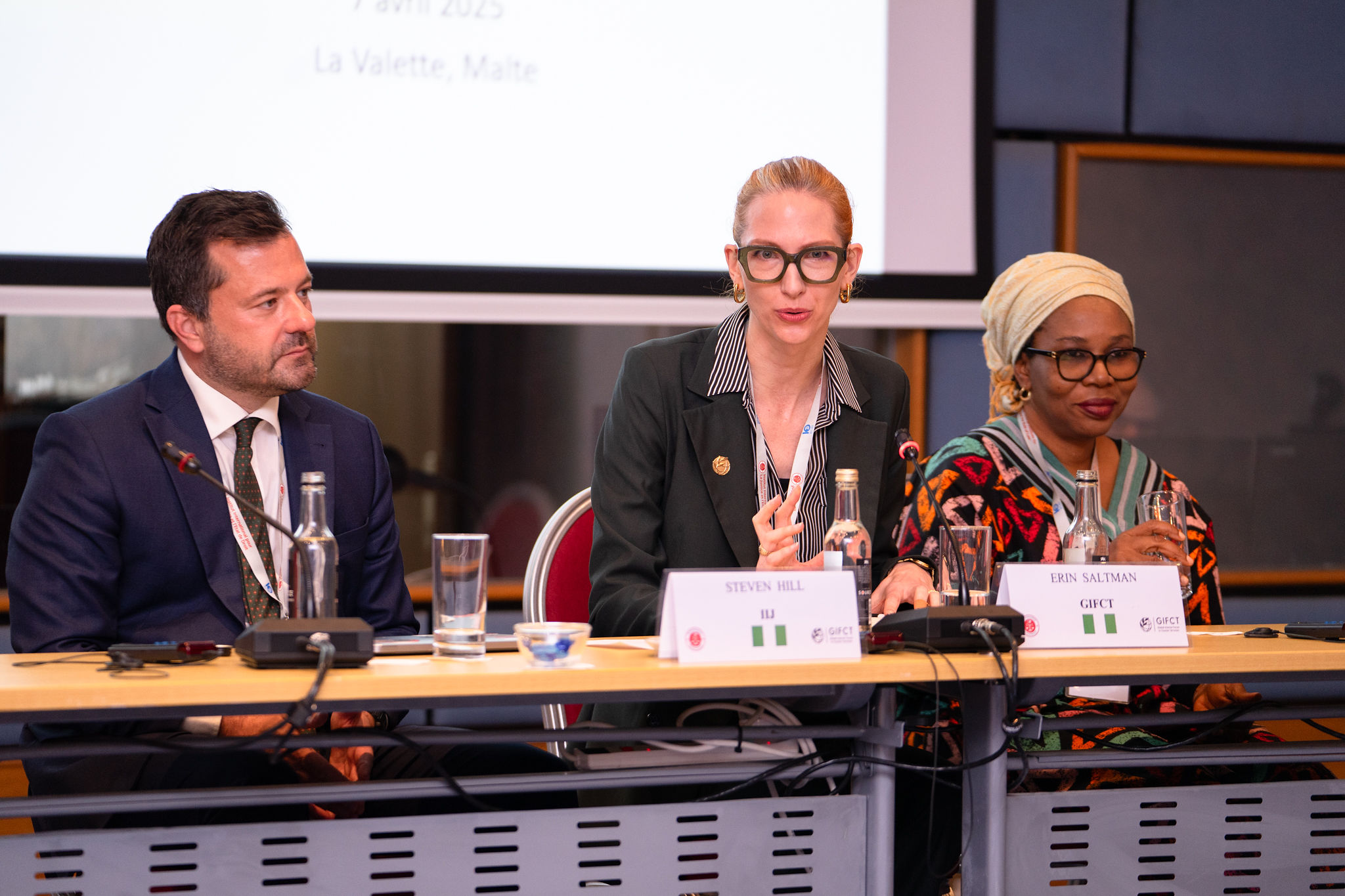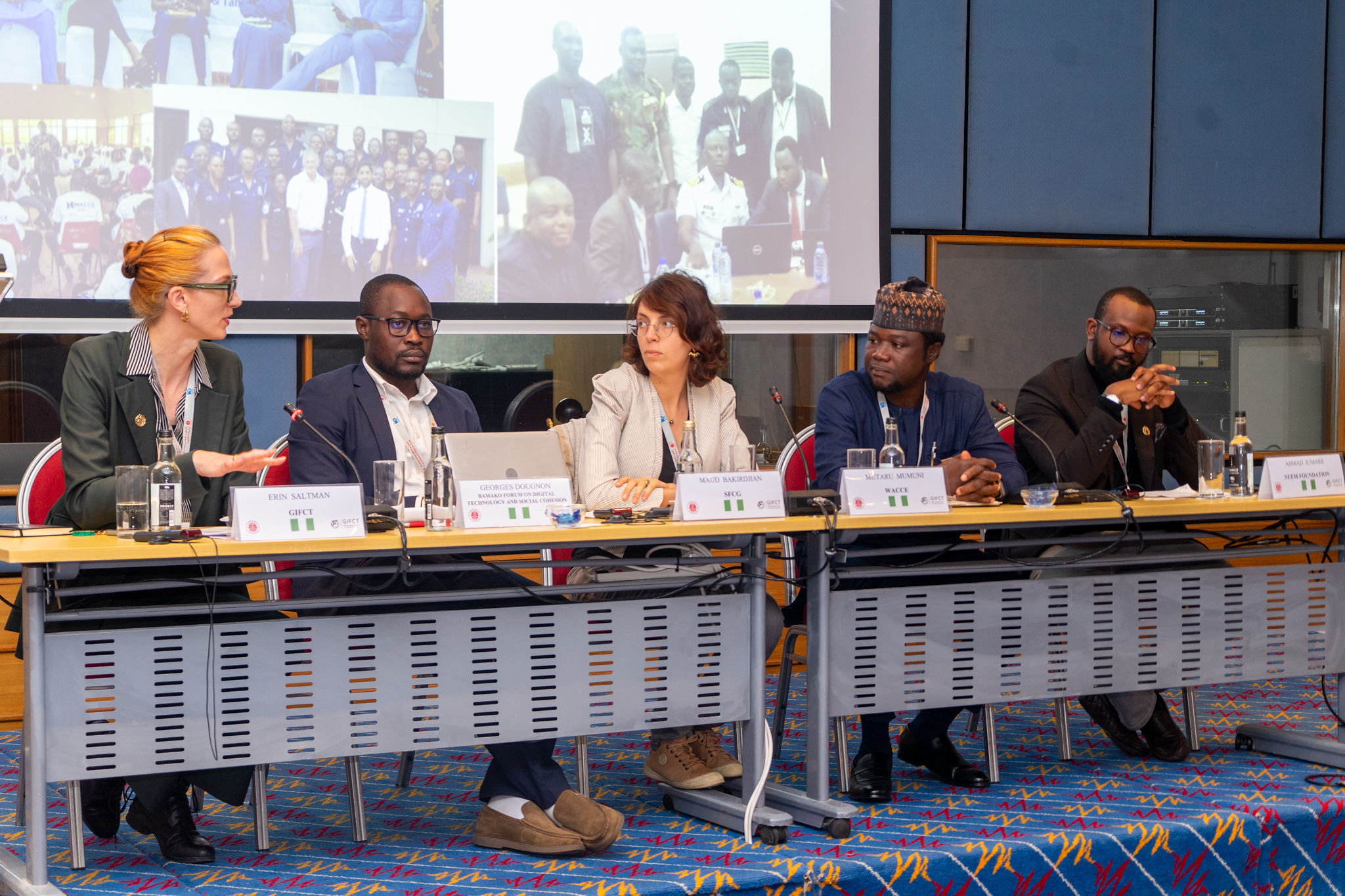The Global Internet Forum to Counter Terrorism (GIFCT), in partnership with The International Institute for Justice and the Rule of Law (IIJ), and with the support of Nigeria, was pleased to host a multi-stakeholder workshop focused on the intersections of tech, terrorism, and counterterrorism in West Africa. The event was held at the IIJ in Valletta, Malta, on April 7th, 2025, and brought together over 40 participants, including government representatives from states across Africa – including Benin, Ghana, Kenya, Malta, Mauritania, Nigeria, Senegal, and Togo – along with civil society members and private sector representatives with expertise on the issues. Participants exchanged insights on threats and trends in the region and identified collaborative solutions and lessons learned regarding efforts to prevent and counter terrorism and violent extremism online in West Africa, and across the continent.

Presentations from government, private sector, and civil society speakers focused on the following themes:
- Analyzing current trends of terrorist and violent extremist groups in the region and beyond, and the importance of contextually tailored approaches
- Highlighting the need for rapid, coordinated responses between governments, tech platforms, and law enforcement to address evolving dynamics
- Examining what the regional regulatory landscape means for content moderation in West Africa and exploring opportunities to adopt best practices
- Showcasing collaborative successes that improve resilience against radicalization and building models for the future
Session One: The State of Play of Offline and Online Terrorism in West Africa
Effective solutions for countering terrorism and violent extremism must be rooted in a strong understanding of the threat landscape in context, so the first panel sought to provide a foundational knowledge base for the rest of the event. Panelists emphasized the Sahel and West Africa as the epicentre of terrorism, as reported by the Economic Community of West African States (ECOWAS), accounting for approximately 50% of global terrorism-related deaths last year.
However, even within the region, there is some variation in the level of intensity. While some countries are experiencing periods of calm, others have faced increasing attacks. Panelists also emphasized that terrorists and violent extremists are constantly updating their tactics including the convergence of TVE groups with criminal groups and exploiting encrypted digital platforms to radicalize and build communities. Two case studies on the exploitation of specific tech stack types – finance-related exploitation and gaming exploitation – explored how these terrorists and violent extremists are utilizing these technologies to achieve their strategic objectives.
Session Two: Definitional Frameworks and Legal Guidelines for Countering Terrorism and Violent Extremism Online
Speakers highlighted that West Africa’s embrace of digital technology has accelerated social development, but has also introduced new vulnerabilities for terrorist and violent extremists to exploit. To address this growing issue, they highlighted the efforts of various governments to establish legal and regulatory frameworks to counter tech-assisted terrorism, while acknowledging that even with strong regulation, enforcement gaps remain.
One case study explored how a state continues to see a regional terrorist group leverage digital platforms to radicalize, recruit, and coordinate attacks. In response, the government has taken measures including the passing of various cyber-related acts and the establishment of key cybersecurity intelligence bodies. Similarly, another panelist shared how in response to concerns about the impacts of joblessness and marginalization on radicalization and mobilization, they have established a national strategy aimed at democratizing the conversation around prevention, actively including youth, and creating space for all citizens to share their perspectives. Beyond the scope of government regulation and intervention, the panel agreed that the private sector plays a critical role in strengthening counterterrorism efforts. However, questions remain about how well government and private sector policy can align, and when it does, more efforts must be made to streamline the efficacy of these communications channels so that further collaboration can occur.

GIFCT Senior Director Membership & Programs Dr. Erin Saltman provides opening remarks alongside IIJ Executive Secretary Steven Hill and Director of International Criminal Justice Cooperation of the Federal Ministry of Justice of Nigeria, Ms. Jones-Nebo.
Session Three: Public-Private Partnerships – Enhancing Collaboration Between Civil Society, the Private Sector, and Government
The third panel of the workshop focused on building stronger public-private partnerships in West Africa to counter online dimensions of terrorism more effectively. Speakers stressed that in a region where cryptocurrency use is widespread, these partnerships are critical. Crypto platforms often provide a channel for illicit activities, yet many law enforcement agencies still lack the capacity to properly investigate these threats, they stressed. A case study of a previously successful public-private partnership related to terrorist financing was shared; it highlighted the importance of the private sector as a key ally for supporting investigations and building digital expertise.
As the threat landscape continues to evolve and as terrorists and violent extremists continue their exploitation of digital spaces, panelists made clear that military action alone will not defeat violent extremism. Governments must adopt whole-of-government and whole-of-society strategies, with stronger cross-border collaboration, the panel explained. Looking ahead, the speakers noted that public-private cooperation must be institutionalized through formal platforms and legislative frameworks at both national and regional levels and that effective collaboration will also depend on sustained funding and investment in capacity-building tools to strengthen the region’s response to tech-enabled threats.
Session Four: Collaborative Programmes to Create Resilience and to Counter Violent Extremism Online
The importance of community was heavily emphasized by speakers across the sessions both for individuals working to counter terrorism and violent extremism and for terrorists themselves. Speakers recalled earlier sessions that highlighted how governments must take into account the impact their actions might have on community trust. Without said trust, these communities are not resilient enough to withstand the allure of terrorist and violent extremist narratives, panelists said. It was explained that terrorists themselves appear aware of the power of community and utilize community building, especially through digital spaces, to recruit, radicalize, and retain individuals to their cause. The final panel therefore turned to the critical role of community in countering violent extremism online.
The discussion highlighted the need for field-informed, community-driven online interventions and stressed that sustainable progress depends on collective action and inclusive collaboration, especially by elevating underrepresented voices. Youth engagement emerged as a top priority, given that violent extremist groups in the Sahel often understand the needs and desires of young people better than the state.
Building digital literacy, empowering community members to take on leadership roles, and fostering pro-social tech design were identified as key strategies to strengthen resilience. Speakers representing various collaborative initiatives also called for deeper cooperation across civil society, governments, and the private sector to support local digital peacebuilders, promote user safety, and create more sustainable, community-owned resilience programs. The panel concluded that community, trust, and relationship building are critical to securing safer online spaces.

GIFCT Senior Director Membership & Programs Dr. Erin Saltman moderates the “Collaborative Programmes to Create Resilience and to Counter Violent Extremism Online” panel.
Additional Contextual Information
As an extension of the discussions that occurred during the event, please see the following collection of expert Insights related to the intersection of terrorism or violent extremism and technology, disinformation, and democracy, and the West African region from our academic research wing, the Global Network on Extremism and Technology (GNET).
View Insights PDF View Insights PDF (French)Next Steps
GIFCT will be following up with regional industry bodies to explore potential GIFCT membership candidates, joining a unique community of tech companies on a common mission to prevent terrorists from exploiting digital platforms. GIFCT will also be connecting West African regional practitioners and experts with GNET to ensure our member platforms and stakeholders can access cutting-edge analyses and research from global experts producing targeted briefings and resources.
We thank all participants connecting with us at the Multi-Sector Workshop on Countering Technology-Assisted and Enabled Terrorism in West Africa for their support of our mission. GIFCT recognizes that this mission must start with voices and perspectives from a range of sectors and global regions to reach a shared understanding of threats, trends, and potential solutions. We are deeply grateful to the IIJ for their partnership and to the Government of Nigeria for their funding support and contributions to the event’s successes.
This workshop follows a long series of regional multi-stakeholder events and activities conducted by GIFCT to connect members and partners with global experts and practitioners to deepen collective understandings of regional terrorism and counterterrorism dynamics and their implications online. To date, our events have been held in diverse regions and locations, including, for example, Singapore, Rio de Janeiro, Tokyo, Ottawa, New York, London, and Accra. To learn more about our past events, please visit our News webpage.




